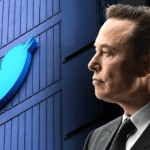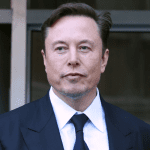Elon Musk has lifted a ban on political advertisements imposed by the microblogging service Twitter to combat misinformation before the entrepreneur purchased the platform now known as X.
The return of possibly false political messaging on X comes less than a week after former President Donald Trump posted there for the first time since January 2021.
Trump tweeted his police mugshot following his detention in Georgia, marking his return to a platform that served as his favorite bullhorn during his presidency.
It was his first post since several days after an outraged crowd of his followers attempted to stop Joe Biden’s certification as president at the US Capitol.
The then-Twitter permanently suspended Trump after the January 6 riots, ruling he had violated the platform’s policy on glorifying violence as he pressed his claims that the election was stolen from him.
Musk, who bought the platform last year, reinstated the former president in November 2022, but Trump stayed away, choosing to reach his followers on his own platform, Truth Social, albeit with a much smaller audience.
X said in a blog post that allowing political ads, starting in the United States, was “building on our commitment to free expression”.
X policies prohibit promotion of false or misleading information, including bogus claims intended to undermine confidence in an election, the blog contended.
X announced that it is expanding its safety and elections teams to focus on combatting platform manipulation, and that it would establish an online center where political ads can be examined.
Musk reduced employees after purchasing Twitter, prompting questions about the company’s ability to filter content and run reliably.
X said it is updating its Civic Integrity Policy for safeguarding elections to tackle content meant to intimidate or deceive voters while aligning with a Musk’s philosophy of letting people say what they want.
“X shouldn’t determine the truthfulness of disputed information,” the platform said in the blog post.
“Rather, we should empower our users to express their opinions and openly debate during elections, in line with our commitment to protecting freedom of expression.”














